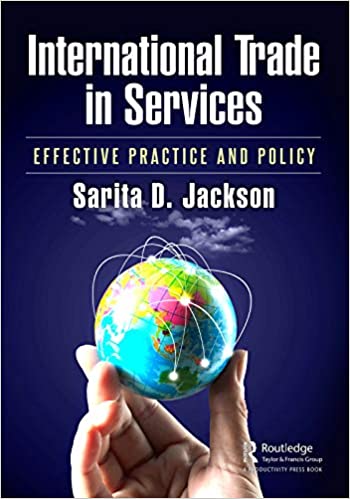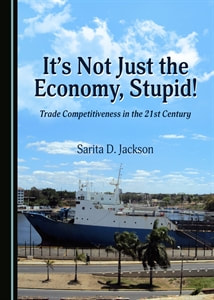The United States has a trade surplus in services, which means that it exports more services than it imports. However, most policy and practical discussions continue to focus mainly on the wide trade deficit in manufacturing and exporting a tangible good.
Since more small business in the international trade space are providing a service, Dr. Jackson's book examines the policies that pertain to the import/export of services and provides a step-by-step guide to exporting a service. Additionally, International Trade in Services: Effective Practice and Policy includes case studies from service providers in different industries and that engage in cross-border services with different regions around the world.
Order your copy (including a Kindle version) on Amazon.
Since more small business in the international trade space are providing a service, Dr. Jackson's book examines the policies that pertain to the import/export of services and provides a step-by-step guide to exporting a service. Additionally, International Trade in Services: Effective Practice and Policy includes case studies from service providers in different industries and that engage in cross-border services with different regions around the world.
Order your copy (including a Kindle version) on Amazon.
How do firms in a globally uncompetitive industry become highly competitive in specific markets?
With the current uncertainty around international trade, some principles remain the same in terms of how to compete in the global economy. If you are curious about all of this talk about trade agreements, tariffs, subsidies, etc., this book is for you.
Building off of the political strategy phrase that became popular during the 1990s, It's Not Just the Economy, Stupid! Trade Competitiveness in the 21st Century published by Cambridge Scholars Publishing, provides insight.
To purchase your signed copy, click here.

